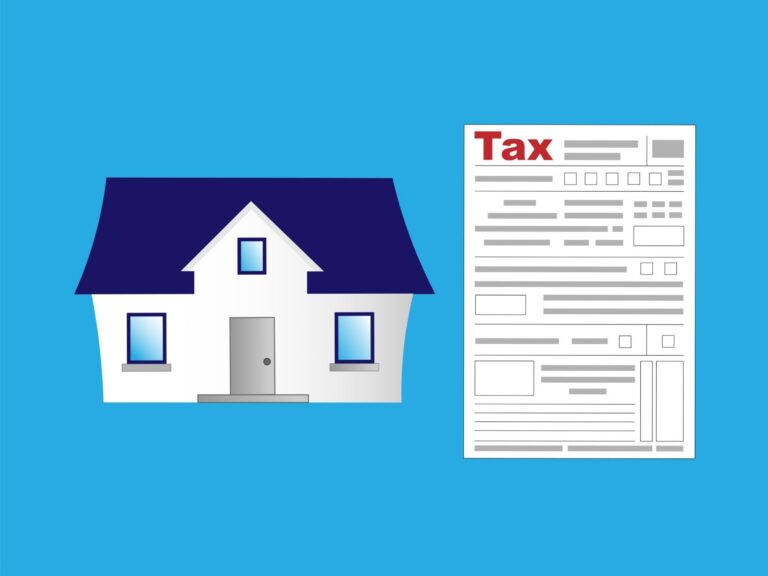Bookkeeping, Record-keeping and Real Estate Taxation
Pagrindiniai mokymosi tikslai:
Įvadas: This section delves into the intricate world of bookkeeping, record-keeping, and real estate taxation. Grasping these fundamentals is pivotal for the effective management of real estate investments and compliance with tax laws.
- Understand the importance of meticulously tracking income and expenses for real estate investment, as this impacts financial performance, tax obligationsir investment strategies.
- Dive deep into the realm of real estate taxation, uncovering tax benefits specific to real estate investments such as depreciation, mortgage interest deductionsir 1031 exchanges.
- Appreciate the significance of collaborating with tax professionals to ensure all available tax deductions are utilized and all regulations are met.

Paveikslas: This infographic provides an essential guide to “Real Estate Terms to Know.” It explains key terms such as Multiple Listing Service, Earnest Money, Due Diligence, Contingencies, Escrow, and Closing Costs. Each term is defined in a concise manner, making it easier for buyers, sellers, and real estate professionals to navigate the complex terminology of the real estate market. This information is particularly useful for those new to real estate transactions, offering a clear understanding of important concepts and processes involved in buying or selling property.
Šaltinis: Pasirinktinė infografika
Bookkeeping and record-keeping are essential components of real estate investing, as they involve keeping track of income and expenses and ensuring compliance with tax laws and regulations. This article discusses the importance of keeping track of income and expenses, the tax implications of real estate investment, and various tax benefits available to real estate investors.
A. Keeping Track of Income and Expenses

Figure title: The Moment of Truth
Šaltinis: iStock
Importance of Tracking Income and Expenses
Keeping track of income and expenses is important for several reasons. It allows you to:
- Monitor the financial performance of your real estate investment
- Identify areas where you can cut costs or increase revenue
- Prepare accurate financial statements for lenders or investors
- Ensure compliance with tax laws and regulations
Implementing a System
To keep track of income and expenses, it’s important to have a system in place for recording all financial transactions related to your real estate investment. This can involve using accounting software, spreadsheets, or even a simple pen and paper. Some common income and expense items to track in real estate investing include:
- Rental income
- Property taxes
- Mortgage payments
- Repairs and maintenance
- Property management fees
- Insurance premiums
- Utility bills
By keeping track of income and expenses, you can ensure that your real estate investment is profitable and compliant with tax laws and regulations.
B. Real Estate Taxation
Tax Benefits of Owning Real Estate Investments
One of the key benefits of owning real estate investments is the tax advantages that come with it. Real estate investors can take advantage of several tax deductions and credits to reduce their tax burden and increase their profitability.
- Depreciation: Depreciation is a tax deduction that allows real estate investors to deduct the cost of the property over a period of time, reducing their taxable income and increasing their cash flow.
- Mortgage interest deduction: This deduction allows real estate investors to deduct the interest paid on their mortgage from their taxable income, reducing their taxable income and increasing their cash flow.
- Property tax deductions: Real estate investors can deduct property taxes paid on their rental properties from their taxable income.
- 1031 exchange: Real estate investors can defer paying capital gains taxes by using a 1031 exchange to sell one property and purchase another like-kind property within a certain time frame (U.S only).
- Repairs and maintenance deductions: Real estate investors can deduct the costs of repairs and maintenance on their rental properties from their taxable income.
- Home office deduction: Real estate investors who have a home office used exclusively for their real estate investment business may be able to deduct a portion of their home-related expenses, such as mortgage interest and property taxes.
- Loss deductions: Real estate investors can deduct losses from their rental properties against their other income, subject to certain limitations and restrictions.

Figure title: Property Tax Concept
Šaltinis: iStock
Working with a tax professional can help identify all available tax deductions and ensure compliance with all tax laws and regulations.
In conclusion, bookkeeping and record-keeping are essential components of real estate investing that involve keeping track of income and expenses and ensuring compliance with tax laws and regulations. By keeping accurate records of all financial transactions related to your real estate investment and working with a tax professional, you can ensure that your investment is profitable and compliant with all legal and regulatory requirements. Furthermore, understanding the tax benefits of owning real estate investments can help you reduce your tax burden and increase your profitability.
Svarbiausios išvados:
Baigiamasis pareiškimas: Bookkeeping and record-keeping serve as the backbone of real estate investment management. This section underscores:
- The necessity of accurate financial tracking, which paints a clear picture of an investment’s health and aids in tax compliance.
- The spectrum of tax benefits in real estate, from common deductions like depreciation to advanced strategies like 1031 exchanges.
- The invaluable role of tax professionals, ensuring a comprehensive approach to real estate tax benefits and adherence to regulations.

